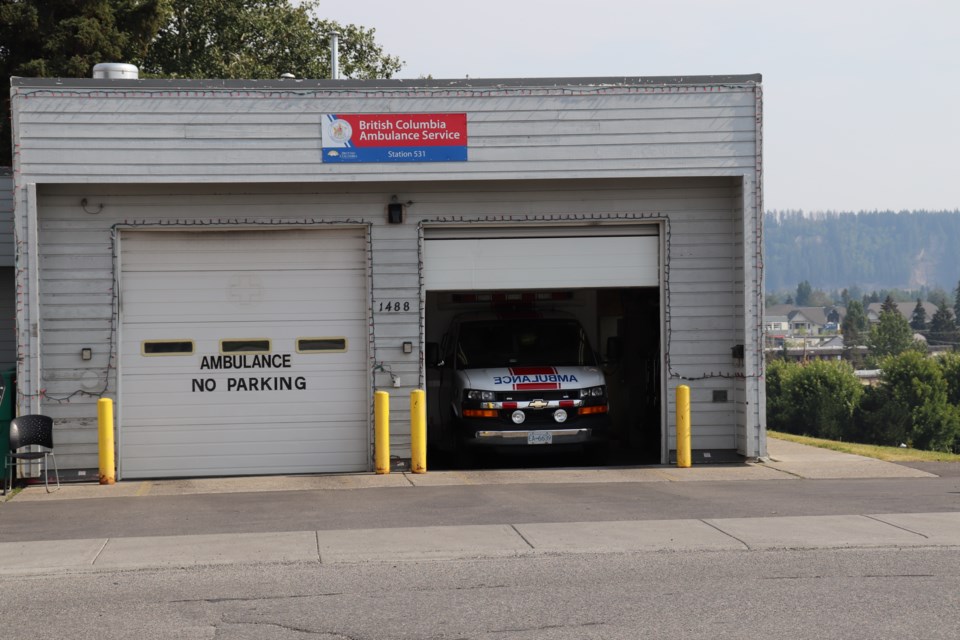Prince George has seen another month with well over 100 overdose calls – a city that normally averages 52 calls per month.
In August, paramedics responded to 129 overdose calls in the northern capital, which is one more than July’s 128 calls to BC Emergency Health Services (BCEHS).
That call load compares to 58 in June and 51 in May earlier this year.
“The community of Prince George generally averages about 52 overdose calls a month but has seen a marked increase 9-1-1 calls for potential overdoses in recent months as well,” says BCEHS spokesperson Sarah Morris in an email to PrinceGeorgeMatters.
July also saw a record-breaking number of overdose calls at 2,706 throughout the province.
“Province-wide, July was the highest month on record for overdose calls (2,706), but both June (2,369) and August (2,370) posted record numbers,” added Morris.
BCEHS says for the last three months, paramedics have responded to close to 7,500 overdose calls across the province, making it the highest number of calls ever recorded in a three-month stretch.
“BCEHS is proud of our paramedics and emergency call-takers professionalism and dedication to overdose patient care in B.C.,” says Morris.
“Paramedics and dispatchers have saved the lives of many overdose patients since the crisis began. When BCEHS paramedics respond to a potential overdose patient the patient has a more than 95 per cent chance of survival.”
It’s also the third month in a row that B.C. has reported more than 170 suspected illicit drug overdose deaths.
To date, Prince George has seen 22 suspected illicit drug overdose deaths in 2020, but the city’s worst year for overdoses in the last decade occurred in 2018, when 49 people died.
Last year, 25 people died of an overdose in Prince George.
Northern Health also has the highest rate of illicit drug overdose deaths in the province with 35 deaths per 100,000 individuals.
“Access to key harm reduction services in the midst of a dual health emergency has been a challenge, and the extreme concentration of the illicit fentanyl being trafficked is resulting in deaths within moments of use,” said Chief Coroner Lisa Lapointe in a news release.
There have been 909 illicit drug deaths to date in 2020 in B.C., and the number of deaths in each health authority is at or near the highest monthly totals ever recorded.
"Access to a safer supply remains the number one, most urgently needed intervention to stop overdoses and stop people from dying," says Guy Felicella, peer clinical advisor with the Overdose Emergency Response Centre and BC Centre on Substance Use.
On Aug. 5, the B.C. government announced it will spend $10.5 million to continue to combat the opioid crisis.
That includes $4.5 million for 17 new supervised consumption sites and $3.5 million for 12 new inhalation overdose prevention sites “in communities hit the hardest by the overdose crisis.”
The government has not yet identified the communities.
- with files from Mike Howell, Glacier Media





